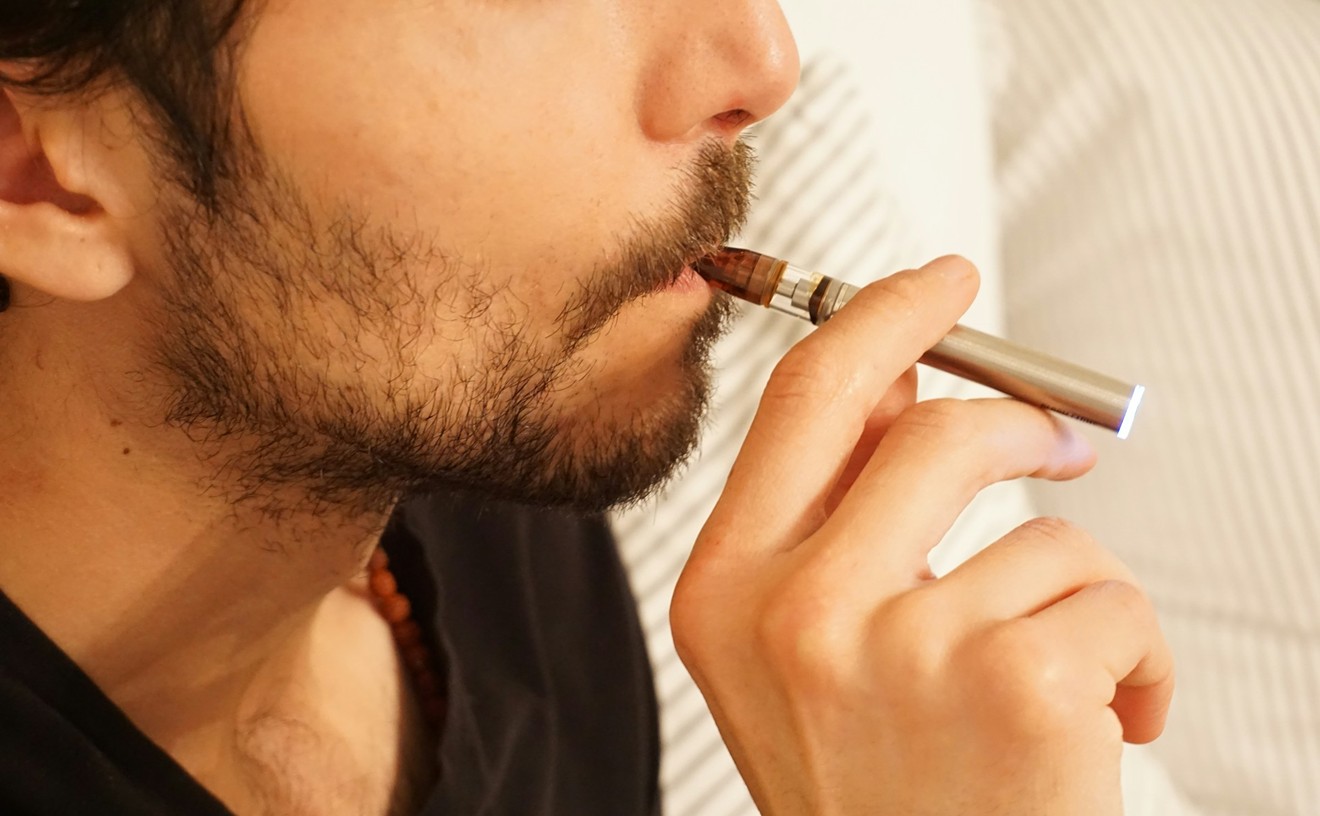People talk about the early days of Colorado’s marijuana industry as though they were the wild, wild West — but instead of the 1880s, they’re remembering an era that isn’t even a decade old. “In 2009 I was a college kid,” says Max Montrose. “I was young and dumb, and I was a budtender. Now I’m running my own cannabis-education company.”
After spending the past seven years working in the cannabis business and with the pro-legalization movement, Montrose now devotes his days to educating people about marijuana. He’s president of the Trichome Institute, a Colorado-based company dedicated to science, education and certification.
Montrose originally started using cannabis as a replacement for many of the pharmaceutical drugs he’d taken in his early teens. “I got myself off of a gamut of pharmaceuticals when I discovered how to work with certain plants that treat me in a certain way,” he says.
Once the high-schooler realized the positive effects that the cannabis plant had on him, he started studying the War on Drugs and then continued his education in college. “When I had a religion class and had to write a paper or a thesis, I’d write about religions that were cannabis-specific,” Montrose recalls. “In sociology, [I looked at] why black people are incarcerated at two to three times the rate of white people. Anthropology, math, science, theory — anything you can think of: For four years, I dedicated every single one of my classes to studying cannabis in a very serious way.”
He started learning outside the classroom, as well, hosting Cannabis Times Television and interning at a company that was designing cannabinoid-based nutraceuticals. He was working there when the company was raided by the federal Drug Enforcement Administration. Then, after seeing a Westword cover story on the boom in MMJ dispensaries in 2009, Montrose started working at one. It was based in an old tattoo shop on Federal Boulevard that his boss had bought for thirty grand and then “overnight turned into a weed dispensary,” Montrose recalls.
“It was a time you’ll never see again in history. It was a completely legal, unregulated drug industry,” he says of those early medical marijuana dispensary days. “There were no packaging requirements, there were no labels, no ingredients, no warning signals, no childproof anything…. We sold product out of plastic bags.”
Staffers used the product, too. They'd smoke weed all day every day, Montrose remembers, and customers could sample the product before they bought it, a practice that is completely unheard of in the industry today.
“It was a circus tent of weed smoke,” he says. “We had a dispensary case with thirty or forty different strains of weed in it that we bought from whoever wanted to sell it to us from the black market. People would roll up with a backpack with a pound of weed, and we’d buy it in cash and then sell it to medical marijuana patients. It was like Baskin-Robbins 31 flavors.”
On an average day, that dispensary brought in ten to twenty grand worth of product, Montrose says. The shop had an account at Chase Bank, and staffers would fill a leather zip bag with cash and drop it off at the bank at the end of every business day. But then a Chase representative called and told them the bank needed to cancel the account — and it wasn’t because cannabis is illegal federally. The money deposited by the dispensary had been collected in a room thick with weed smoke; it reeked of marijuana. When the bank opened the vault in the morning, the smell filled the entire place. “We sold so much fucking weed, we stunk up the bank — so they told us they couldn’t bank with us anymore,” Montrose says.
One day, two cops came by right after Montrose had taken a giant rip off a bong.”I just about shat my pants,” Montrose recalls, adding that he thought the dispensary was getting raided. The cops asked if the shop sold weed, and then asked if they could come in and see the place because they were curious; they’d never been in an actual dispensary before. Montrose asked if they had a warrant, and when they said they didn’t, he refused to let them in.
After their visit, Montrose asked his boss whether what they were doing was legal. “I’ll never forget,” he says. “He looked back at me and said, ‘I don’t know.’”
It was shocking how little everyone knew about the industry. “It was this time period that the banks didn’t understand what was going on,” Montrose continues. “The weed industry didn’t know what was going on. The police didn’t know what was going on. Patients didn’t know. No one knew what the fuck was happening. The weed industry in that time was chaos.”
What worried him then, and still worries him now, is that some people in the industry didn’t know how to treat patients, either. Back then, medical patients would come into the dispensary barely able to walk because their multiple sclerosis symptoms were so bad, and there’d be rap blasting in the back and pit bulls running through the store.
Montrose ended up taking a few patients under his wing to make sure they were getting the kind of marijuana they needed. One of his first patients was Ray, who had MS and walked with a cane, hunched over.”This guy was really hurting, and he needed help — and at the time, nobody cared about this guy,” he says. “It was just, ‘Sell him some weed and move on with it.’”
Montrose says he was appalled at how medical patients were treated back then, so he founded the Trichome Institute. Trichome treats cannabis like wine and teaches people how to be weed sommeliers. Anyone can take his classes, but many dispensaries require their budtenders to take them so that they can be trained to identify marijuana by the look and smell of the bud, as well as confirm the health of the product by checking for dust mites, fungus and mold.
“We are problem-solvers in the industry,” Montrose says. “The number-one problem is people not knowing. It’s a lack of education.... The most important thing that I could do is to help educate people, and that’s why the Trichome Institute is an education company for anybody and everybody, from government officials to budtenders, because everybody needs a re-education.”
[
{
"name": "Air - MediumRectangle - Inline Content - Mobile Display Size",
"component": "12017618",
"insertPoint": "2",
"requiredCountToDisplay": "2"
},{
"name": "Editor Picks",
"component": "17242653",
"insertPoint": "4",
"requiredCountToDisplay": "1"
},{
"name": "Inline Links",
"component": "18838239",
"insertPoint": "8th",
"startingPoint": 8,
"requiredCountToDisplay": "7",
"maxInsertions": 25
},{
"name": "Air - MediumRectangle - Combo - Inline Content",
"component": "17261320",
"insertPoint": "8th",
"startingPoint": 8,
"requiredCountToDisplay": "7",
"maxInsertions": 25
},{
"name": "Inline Links",
"component": "18838239",
"insertPoint": "8th",
"startingPoint": 12,
"requiredCountToDisplay": "11",
"maxInsertions": 25
},{
"name": "Air - Leaderboard Tower - Combo - Inline Content",
"component": "17261321",
"insertPoint": "8th",
"startingPoint": 12,
"requiredCountToDisplay": "11",
"maxInsertions": 25
}
]











